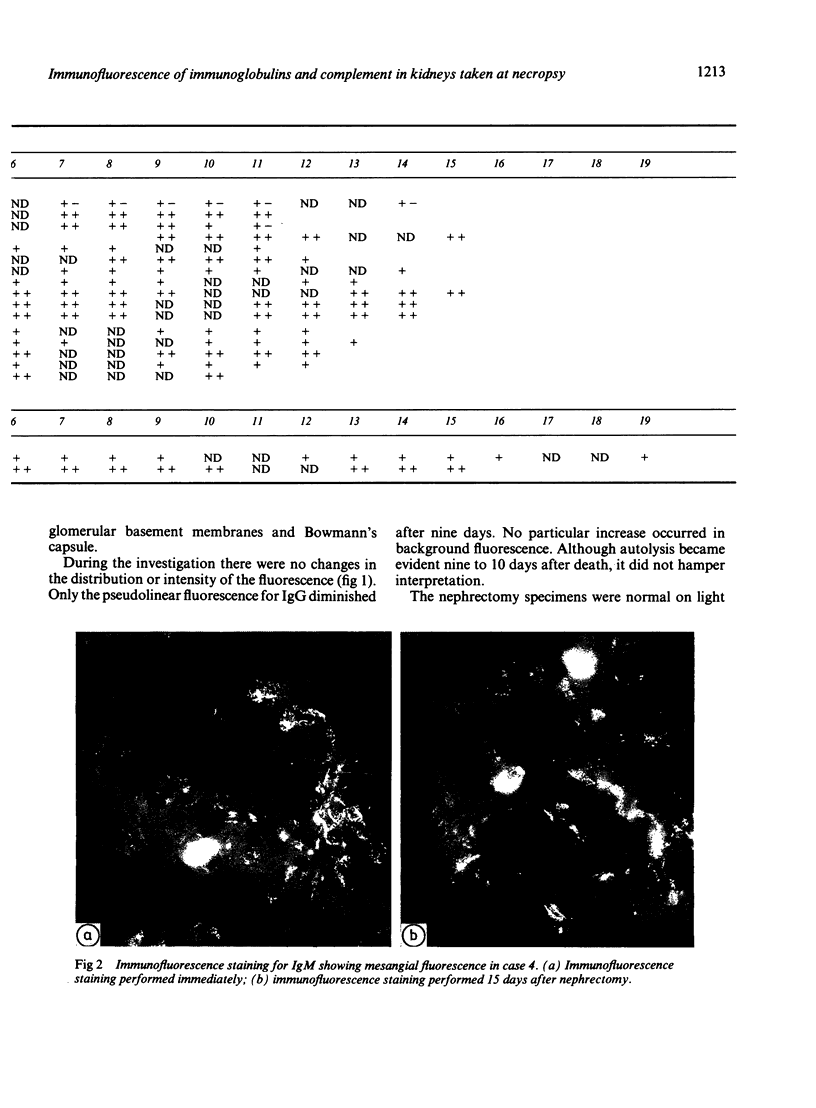Abstract
The immunofluorescence of immunoglobulins and complement components in kidney specimens taken at necropsy was investigated to determine the persistence of antigenicity of immune reactants. Of 74 consecutive necropsies, 12 cases had positive glomerular fluorescence. The pattern and intensity were followed up for up to 15 days. Along with necropsy specimens, tissue samples of normal looking kidney from 14 nephrectomies were also studied. Two of these specimens turned out to be positive in the immediate immunofluorescence study. To rule out possible false positive staining after death immunofluorescence findings in all nephrectomy specimens were followed up for up to 19 days. The presence of immunoglobulins and complement could be shown for between 12 and 15 days after death; no changes in immunofluorescence findings occurred during this period. It is concluded that immunofluorescence provides valuable information when immunologically mediated reactions need to be clarified in necropsy kidneys.
Full text
PDF



Images in this article
Selected References
These references are in PubMed. This may not be the complete list of references from this article.
- Larsen S. Glomerular immune deposits in kidneys from patients with no clinical or light microscopic evidence of glomerulonephritis. Assessment of the influence of autolysis on identification of immunoglobulins and complement. Acta Pathol Microbiol Scand A. 1979 Sep;87A(5):313–319. doi: 10.1111/j.1699-0463.1979.tb00058.x. [DOI] [PubMed] [Google Scholar]
- Sinniah R. Occurrence of mesangial IgA and IgM deposits in a control necropsy population. J Clin Pathol. 1983 Mar;36(3):276–279. doi: 10.1136/jcp.36.3.276. [DOI] [PMC free article] [PubMed] [Google Scholar]
- Sutherland J. C., Markham R. V., Jr, Mardiney M. R., Jr Subclinical immune complexes in the glomeruli of kidneys postmortem. Am J Med. 1974 Oct;57(4):536–541. doi: 10.1016/0002-9343(74)90003-5. [DOI] [PubMed] [Google Scholar]




